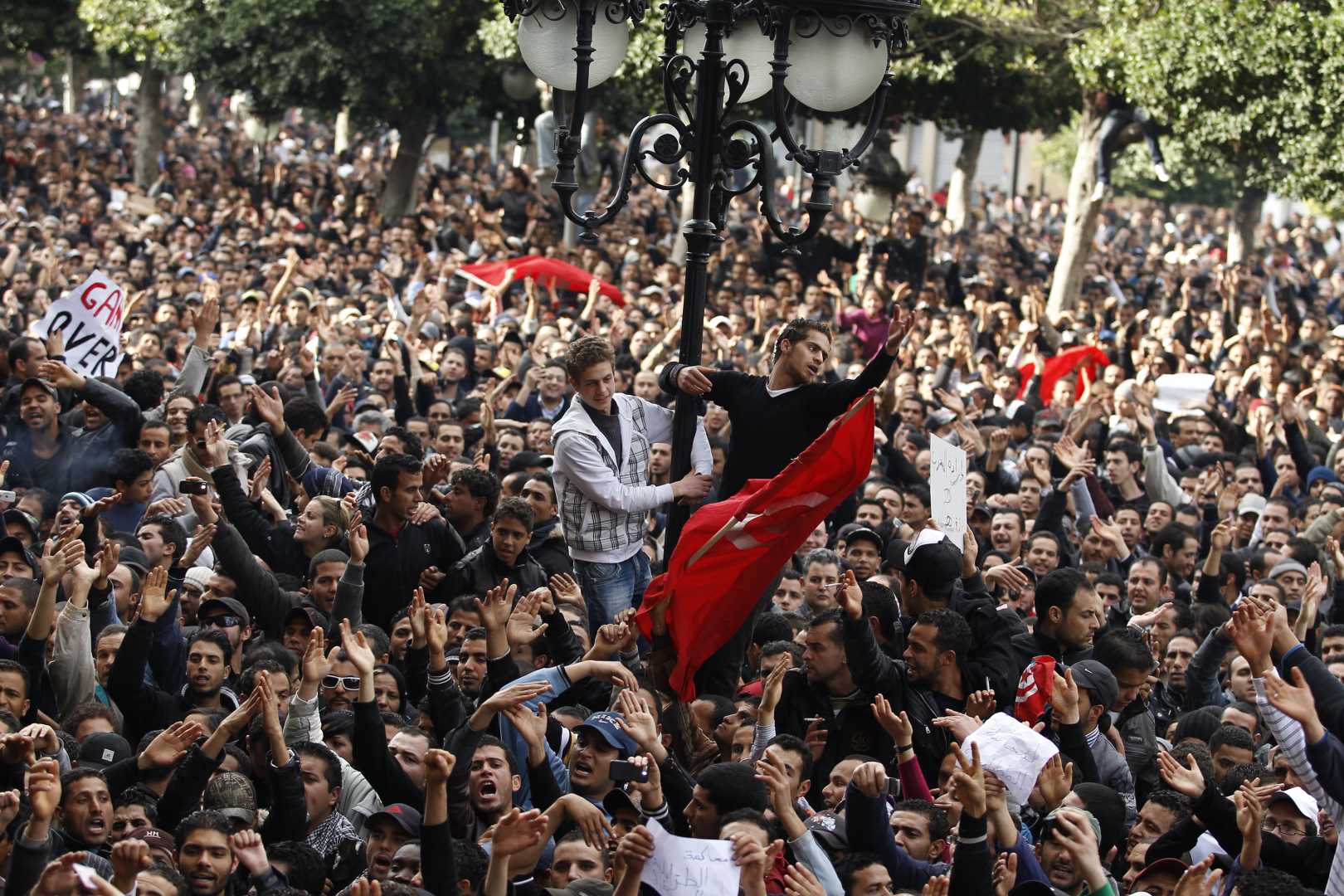World
Tunisians Mark 14th Anniversary of Arab Spring Amid Political Crackdown

TUNIS, Tunisia — Tunisians gathered in the capital on Tuesday to mark the 14th anniversary of the uprising that sparked the Arab Spring, demanding the release of jailed political figures and protesting what they call an authoritarian drift under President Kais Saied. The march, organized by a coalition of opposition groups, commemorated the 2011 ousting of dictator Zine El Abidine Ben Ali, a pivotal moment that inspired revolts across the Arab world.
The protest, though smaller than in previous years, drew dozens of demonstrators who carried pictures of detained opposition leaders, including former Prime Minister Ali Larayedh and Ennahdha party leader Rached Ghannouchi. Both face charges ranging from sending jihadists to Syria to plotting against state security. The rally was met with a heavy police presence, according to an AFP journalist on the scene.
President Saied, re-elected in October 2023 in a vote marked by low turnout, has faced mounting criticism for consolidating power since his 2021 power grab. Critics and human rights groups accuse him of undermining democracy and cracking down on dissent. Saied moved the official commemoration of the 2011 revolution to December 17, the day street vendor Mohamed Bouazizi self-immolated, sparking the uprising. However, many Tunisians continue to mark the revolution on January 14, the day Ben Ali fled the country.
Chaima Issa, an opposition figure and member of the National Salvation Front (FSN), vowed that the anniversary would not be forgotten. “January 14 is not an easy date to erase,” she said. Human Rights Watch reports that over 170 people are detained in Tunisia on politically motivated charges, many under a law introduced by Saied that criminalizes “spreading false news” with up to 10 years in prison.
The 2011 revolution, which began with Bouazizi’s act of protest in Sidi Bouzid, inspired a wave of uprisings across the Arab world. While Tunisia initially emerged as a beacon of hope, its transition to democracy has been fraught with challenges. The country now grapples with economic instability, political polarization, and a crackdown on dissent, raising questions about the legacy of the Arab Spring.
Across the region, the Arab Spring’s outcomes have been mixed. In Syria, a 14-year civil war ended last month with the ousting of dictator Bashar Al-Assad, while countries like Egypt and Libya have seen authoritarianism resurge. The initial hopes for freedom and dignity have given way to hybrid regimes that blend authoritarian practices with democratic facades, leaving many disillusioned.
Despite these setbacks, the moral and political significance of the 2011 uprisings endures. The revolutions exposed the vulnerabilities of authoritarian regimes and reshaped state-society relations across the Arab world. As Tunisians reflect on the 14th anniversary of their revolution, the struggle for true democratic transformation continues, even as the challenges mount.












